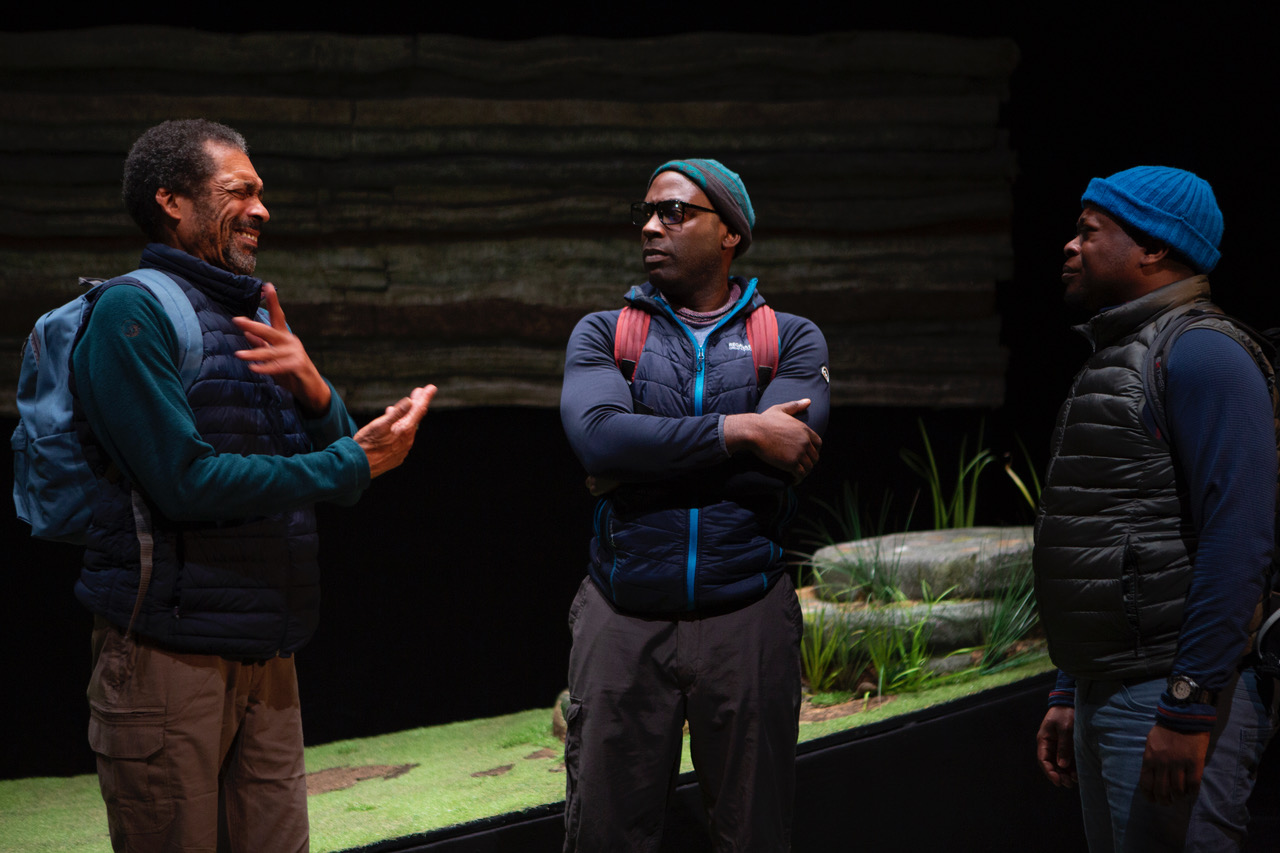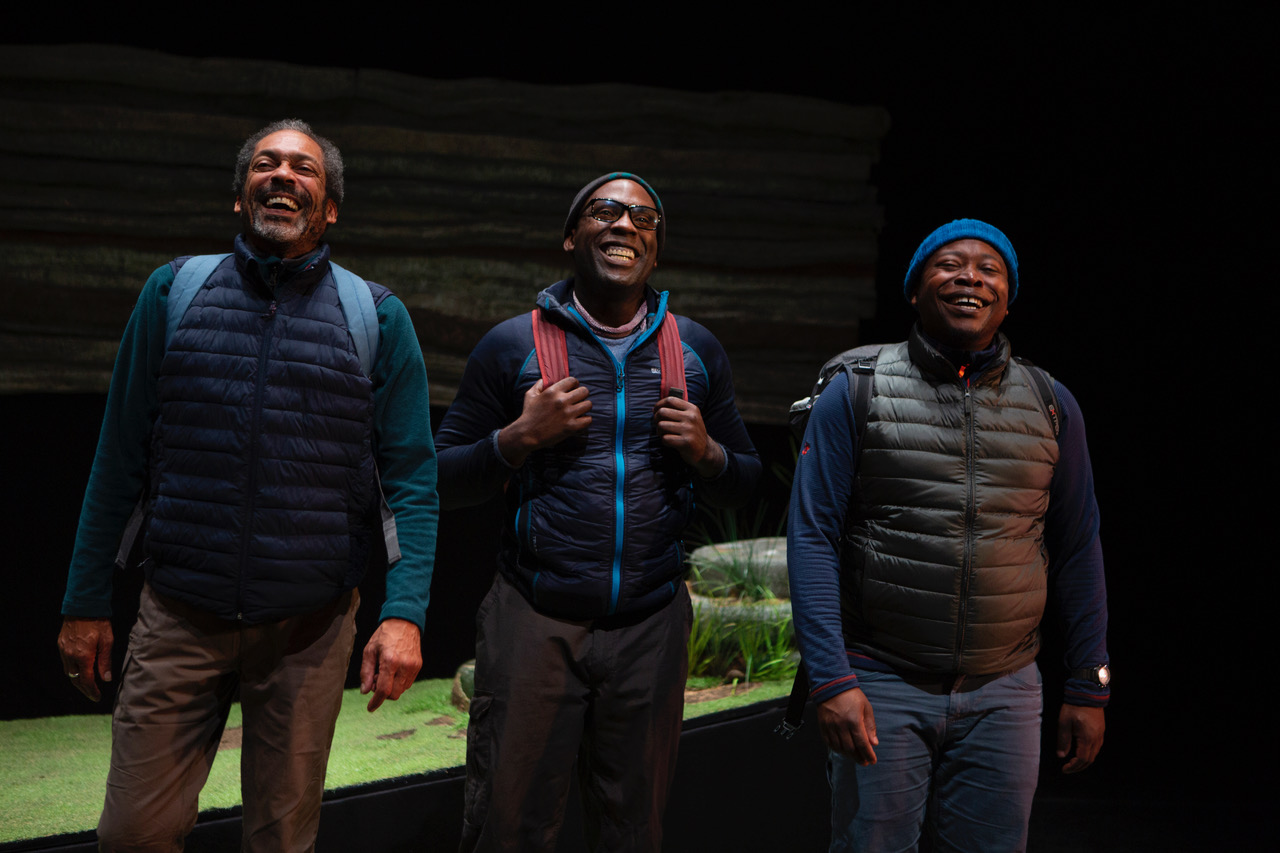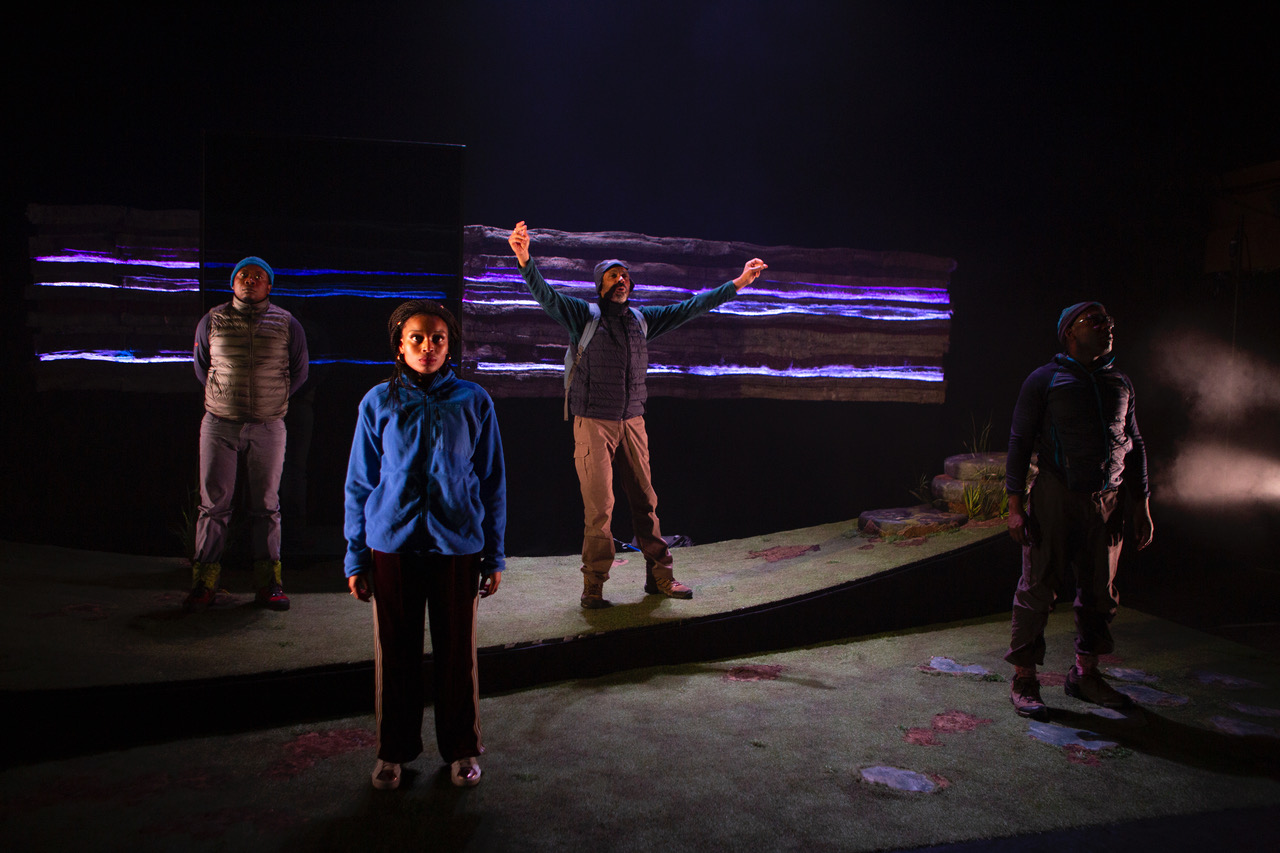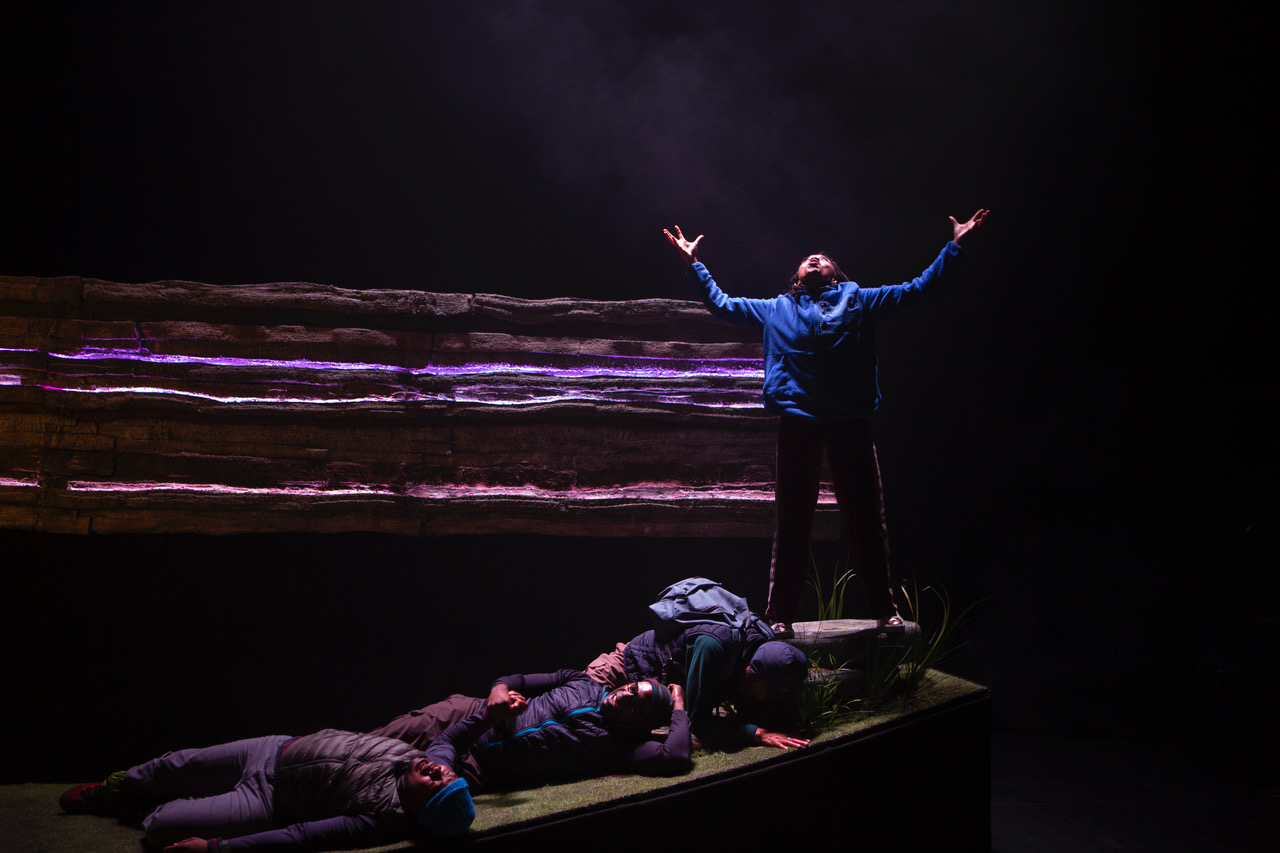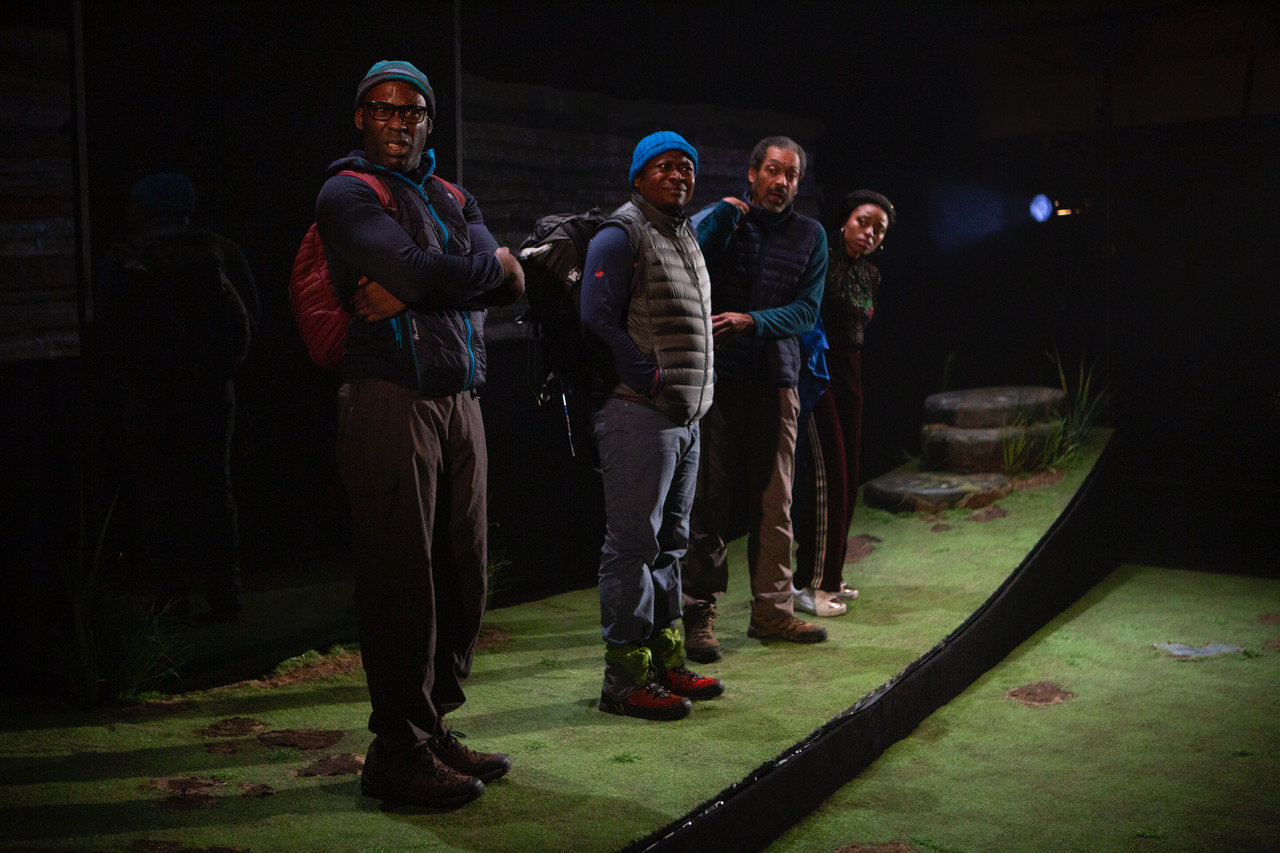Black Men Walking is a unique play written by Testament and directed by Dawn Walton. We follow the journey of three middle-aged black men who embark on a walking trip that will change their lives and challenge our perceptions. Set in Yorkshire, where despite the lack of multiculturalism, there is a walking club where black men from around Yorkshire dedicate their weekend to a walk every month. Not just for exercise but for unity. They share their emotions and confide in one another as they put their body to work in extreme conditions.
On this particular trip, however, only three men; Thomas, Matthew and Richard have agreed to walk due to extreme weather conditions. Thomas (Ben Onwukwe) is a middle-aged man who grew up in the UK but from a Caribbean background, explains he came to the UK as a small boy and faced discrimination throughout his life. However, when he researches his roots, he discovers his ancestors were from Yorkshire too! Full of passion, he expresses to his fellow walkers that black people were on this land over 1000 years ago and that we were more than slaves. He wants to prove that we deserve to be in Yorkshire as much as white people.
Matthew (Patrick Regis), also middle aged, shares a similar background story to Thomas. He too came to the UK as a young boy from the Caribbean and faced racism. Although this impacted him growing up, he was able to become a Doctor and make a name for himself. However, Matthew is a slave to his phone, constantly receiving messages from his work and his wife. Whilst we don’t quite understand the urgencies in these text messages we can see they constantly wear him down. Although he appears to be very straight laced with his choice of profession and his English wife, he surprises the audience when he expresses his love for N.W.A, his roots and his family.
These men are walking in the footsteps of their black ancestors.
Richard (Tonderai Munyevu) Is from Ghana but moved to Yorkshire when he was young. He is proud of his roots but loves being a Yorkshire man. Oblivious to the racism around him as a black man, he believes there has been progression with race relations. Full of life and positivity he is excited to be part of these walks and make new friends. However, as the play unfolds, Richards smile starts to fade as he explains how he just lost his father. Sadly, their relationship was very strained and the impact of this starts to take a toll on him.
Each of these men carry their emotional luggage on their walk as they battle the fog and snow to get to the top of their mountain. As they walk the journey, they meet a young black lady called Ayeesha (Dorcas Sebuyange), an aspiring rapper who has run up the mountain to escape the racial abuse she just received from locals in a chicken shop. Fed up with the abuse, she wants to run away from Yorkshire, as it doesn’t feel like home to her.
As we follow these characters on their walk, we see the prevalence of racism and the effect it has on so many people of colour – irrespective of what their background is or how many generations they have been in the country. The play highlights that rather than being “foreigners”, black people have as much ownership of this land – they were on it before others were and lived on it not as slaves, but royalty. These men are walking in the footsteps of their black ancestors.
Indeed, recent DNA analysis on Britain’s oldest complete skeleton (known as Cheddar man), who lived about 10,000 years ago revealed he had “dark to black” skin. So, the first modern Britons, who lived about 10,000 years ago were black and people of white British ancestry alive today are descendants of this population. Tom Booth, an archaeologist at the Natural History Museum who worked on the project, said: “It really shows up that these imaginary racial categories that we have are really very modern constructions, or very recent constructions, that really are not applicable to the past at all.”
I love that the play is set around black middle-aged men, unfortunately something we rarely see in theatre. However, I did find the play a little far-fetched at times, partly because the characters needed further development in order for the audience to relate and understand their journey.
I appreciated the focus on how our ancestors were in the UK over 2000 years ago, making us have every right to be here now – something our history lessons fail to cover. It’s a nice family play that at times will make you laugh, smile and reflect on the truth.























